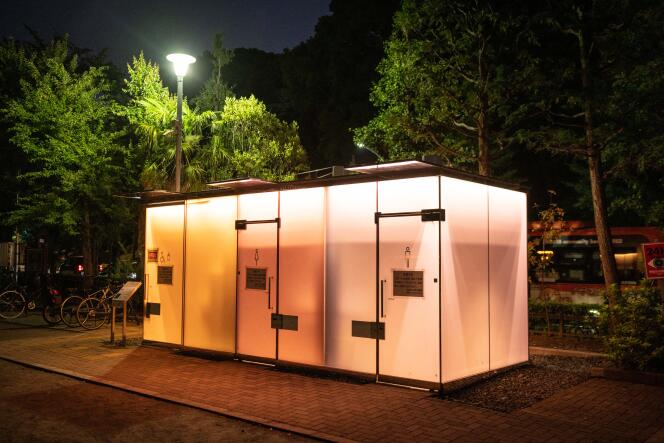

LETTER FROM TOKYO

Every morning, as she walks her bulldog through the alleys of Tokyo's Ueno Park, she uses a large pair of litter pickers to retrieve cigarette butts and other small detritus from the flower beds and stuffs them into a plastic bag. When she discovers a field flower, she bends and crouches down, removing any twigs that might obstruct the bloom, with the same gentleness as a gardener. A retired teacher, this walker does such work voluntarily; Sometimes, she even goes so far as to place a flower in a cardboard cup in the park's toilets. "It's more cheerful," she said. In any case, it's an unexpected level of attention.
Public restrooms in Japanese cities are an astonishing sight for the newcomer: Numerous and enviably clean – even the rare ones that are somewhat dilapidated – they stand in stark contrast to the state of such places in Europe.
In the movie Perfect Days, released in France on November 29, German filmmaker Wim Wenders takes viewers on a tour of this meticulous cleaning, via the everyday life of a cleaner of public toilets in Tokyo's Shibuya district. He performs his routine, thankless task with the satisfaction that comes from a job well done. Here, the notion of a dead-end job is ignored. Any human activity, however unrewarding, is in principle respectable – if we exclude trades that are subject to ancestral discrimination, something still weighing insidiously on descendants of so-called "hamlet dwellers" (burakumin) such as tanners, butchers... who were once considered unclean.
It's rare to search Tokyo for a public toilet without finding one. There are several categories: Those in streets, parks, and squares managed by the boroughs; Those in train and subway stations, accessible even if located beyond the gates (just ask the attendant to let you pass); Those in parking lots, underground or above-ground shopping arcades; Mini-markets, office buildings; Temples and shrines. Generally indicated by signage, they are all available to anyone and free of charge. Cleaning is generally entrusted to private-sector companies. Always spotless, they are never vandalized. The same applies to train toilets.
The cleanliness of public toilets is part of what everyone in Japan has the right to expect from these places. It seems to be taken for granted. It used to be said in Japan that you judge a person by the cleanliness of their toilet. Japanese children in primary and secondary schools, both public and private, clean their school's toilets – not as a punishment, but as a rotational contribution to the upkeep of the school, in the same way as washing the windows or sweeping the classroom. Taught from an early age, this attention to hygiene is still deeply rooted in people's minds.
You have 45% of this article left to read. The rest is for subscribers only.
